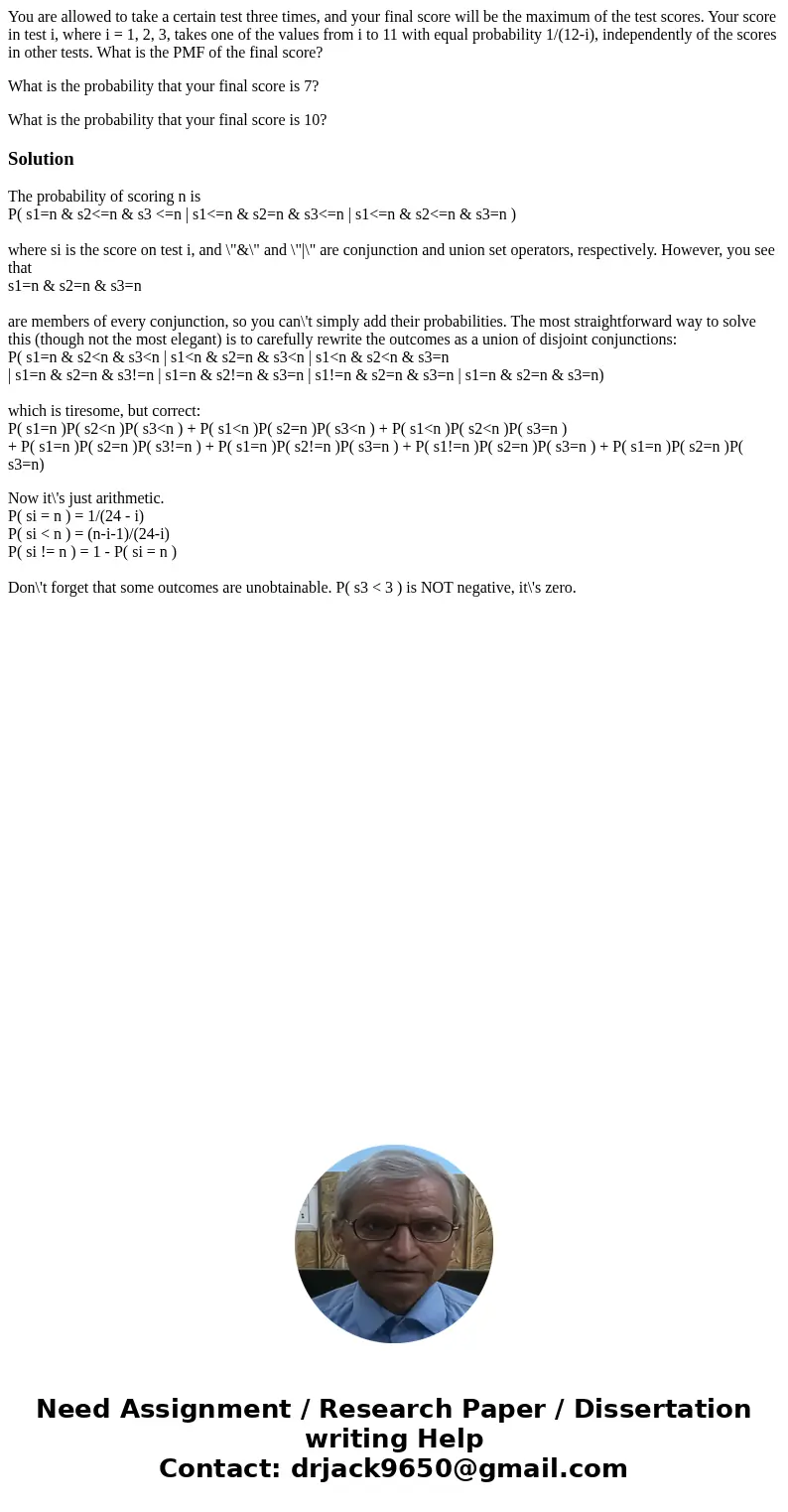You are allowed to take a certain test three times and your
You are allowed to take a certain test three times, and your final score will be the maximum of the test scores. Your score in test i, where i = 1, 2, 3, takes one of the values from i to 11 with equal probability 1/(12-i), independently of the scores in other tests. What is the PMF of the final score?
What is the probability that your final score is 7?
What is the probability that your final score is 10?
Solution
The probability of scoring n is
P( s1=n & s2<=n & s3 <=n | s1<=n & s2=n & s3<=n | s1<=n & s2<=n & s3=n )
where si is the score on test i, and \"&\" and \"|\" are conjunction and union set operators, respectively. However, you see that
s1=n & s2=n & s3=n
are members of every conjunction, so you can\'t simply add their probabilities. The most straightforward way to solve this (though not the most elegant) is to carefully rewrite the outcomes as a union of disjoint conjunctions:
P( s1=n & s2<n & s3<n | s1<n & s2=n & s3<n | s1<n & s2<n & s3=n
| s1=n & s2=n & s3!=n | s1=n & s2!=n & s3=n | s1!=n & s2=n & s3=n | s1=n & s2=n & s3=n)
which is tiresome, but correct:
P( s1=n )P( s2<n )P( s3<n ) + P( s1<n )P( s2=n )P( s3<n ) + P( s1<n )P( s2<n )P( s3=n )
+ P( s1=n )P( s2=n )P( s3!=n ) + P( s1=n )P( s2!=n )P( s3=n ) + P( s1!=n )P( s2=n )P( s3=n ) + P( s1=n )P( s2=n )P( s3=n)
Now it\'s just arithmetic.
P( si = n ) = 1/(24 - i)
P( si < n ) = (n-i-1)/(24-i)
P( si != n ) = 1 - P( si = n )
Don\'t forget that some outcomes are unobtainable. P( s3 < 3 ) is NOT negative, it\'s zero.

 Homework Sourse
Homework Sourse